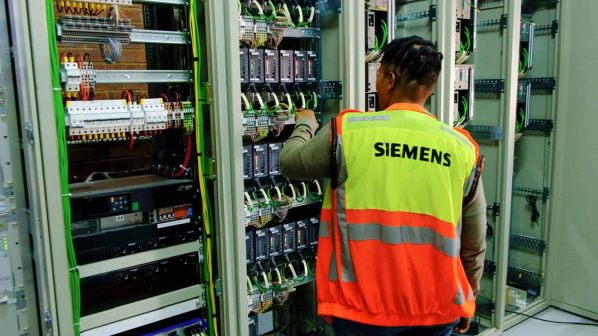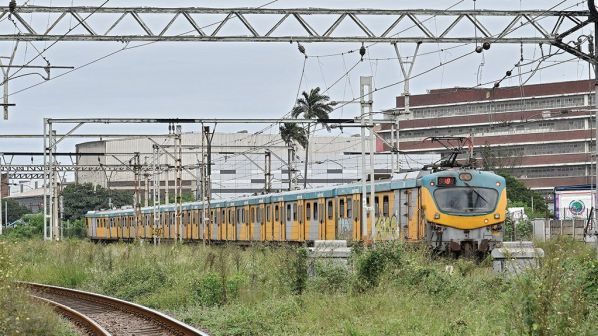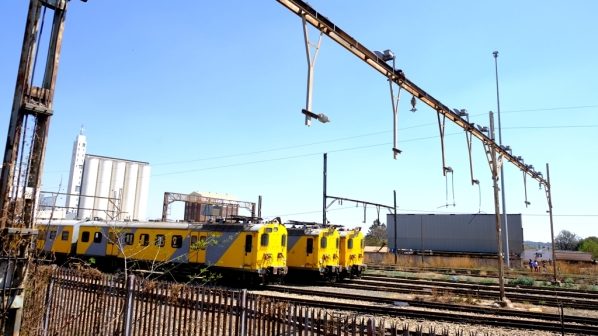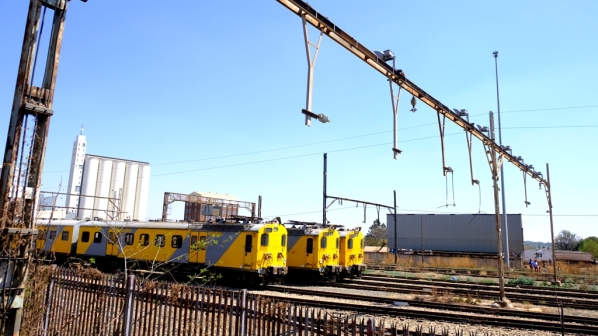SIEMENS Mobility has completed the Gauteng resignalling project, the largest in South African railway history, to improve commuter services in the region.
The project also included a pilot ETCS installation for seven Passenger Rail Agency of South Africa (Prasa) stations to ensure the operator is ETCS Level 2 ready.
Siemens replaced the obsolete relay-based signalling, some of which predated World War II, with a new system based on Sicas S7 electronic interlocking technology, which complies with Safety Integrity Level 4 (SIL-4). The new systems mean Prasa has a fully bi-directional system designed for 2min 30 sec headways, with the ability to optimise timetable planning, and remote monitoring and fault-finding solutions for technicians.
The resignalling project had two phases:
- Gauteng 1 (G1), awarded in April 2011: the construction of a Gauteng Nerve Centre (GNC) and the resignalling of 17 stations, and
- Gauteng 2 (G2), awarded in March 2014: the construction of a new Central Train Control (CTC) facility in Germiston, the resignalling of an additional 72 stations as well as track and overhead electrification works to improve flexibility of train operations.
At its peak Siemens delivered two stations per month, whilst managing a project schedule of more than 11,000 line items. Together, G1 and G2 catered for the consolidation of 33 decentralised CTC/signal cabins into the GNC in Kaalfontein with eight satellite CTCs, which will be used for business continuity.
Prasa staff were fully trained over 18 months to enable migration and effectively handle the new technology. This involved 32,202 hours of training to support train control officers (TCO) transitioning from a desk and diagram system to an IT-based Satcos workstation.
To maximise local content, Siemens established a supplier development programme and set up a local assembly and manufacturing facility in Northriding, Johannesburg. Siemens employed 15 subcontractors and worked with nearly 50 Small, Medium and Micro-sized Enterprises (SMMEs), with approximately 20 entities benefiting directly from enterprise and supplier development programmes.
Prasa and Siemens reached critical milestones despite the impact of the Covid-19 pandemic, which hit at the height of project delivery and stopped site work for approximately three months. Work was also able to continue following unprecedented levels of theft and vandalism on Prasa infrastructure.
“The key highlight for me is really the long-anticipated consolidation of the stations we have into one operation, meaning the Centralised Train Control (CTC),” says Prasa acting signal and telecommunications manager, Mr Athanacious Makgamatha. “It’s remarkable that we can embrace new technology like this, especially considering that we come from an era of manual authorisation and obsolete technology that we had to battle to repair and maintain.
“The system offers enhanced safety and operational efficiency to our commuters, and we've already seen this on the Mabopane line, achieving a 95% availability and reliability rate. Additionally, the system's security is improved through the reduction of copper.”




